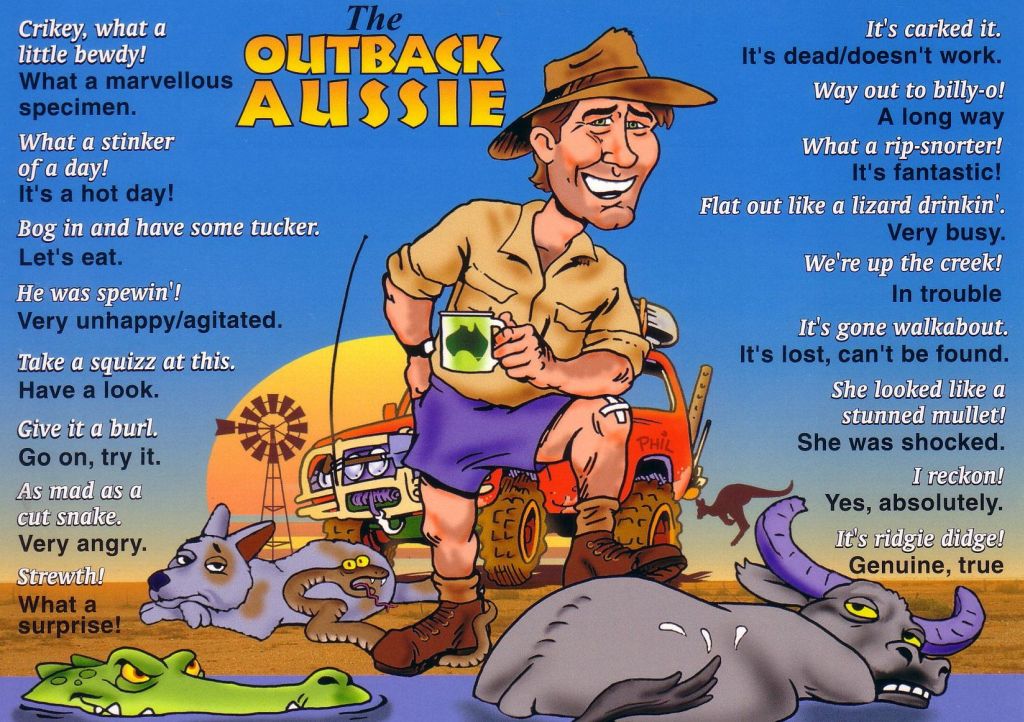English is an official language in 72 countries around the world, many of them belonging to the British Commonwealth, and Australia is one of the most well-known examples. Although English is widely spoken, with so many countries spread (esparcidos) all over the world, it is no surprise that there are a number of differences in the vocabulary, colloquialisms and slang (jerga) that you will hear in each place. Australian English and slang is distinct, but its roots (raices) can be traced back to the country’s history of British settlement (colonia). In fact, some of the words and phrases used today are the same as those that were used in the eighteenth century, and some are the same as the ones that you can hear in London right now! This month we look at how Australian slang evolved and see some examples in context to help you prepare for an encounter with an Australian or, even better, a trip to the Great Southern Land, Australia!

If you have the chance to visit Australia and mingle (mezclarse) with the locals, especially in more relaxed and social settings, you should be prepared to hear plenty of their colourful slang, or Strine as it’s also called there. You could, for example, overhear (oír por casualidad) some parents having a chinwag (a chat, a conversation) and complaining about their ankle biters (a small child) and saying what hard yakka (hard work) it can be looking after them, how bushed they feel at the end of the day and how stoked they’d be to have a night off! On the other hand, you could hear a couple of sheilas(woman) talking about the previous night out with some dinkum (genuine) friends down at the local pub having some tucker and a few tinnies (can of beer) . In fact, the only problem was when some yobbos (hooligans) rocked up,(approach/arrive) but thankfully they didn’t stay long. There’s often a price to pay for a great night out and after a bit too much grog (alcohol) they’re both feeling a bit crook (sick/ill) this arvo (afternoon) but what a beaut (beautiful/great) night, last night was! And then you might hear them say hooroo (goodbye). And I reckon (to think/to suppose) you’ll hear plenty of blokes (man) saying G’day mate!, Hello cobber (friend), and ta (thank you) for that, more times than you can count
Many slang words come from contracting words with two or more syllables (and then, often, adding the suffix –o) or making diminutive forms of the words, for example arvo, and tinnies from the table above. We get arvo from the shortening (acortamiento) of afternoon and adding -o, and tinnies is the diminutive form of tins (another word for cans). Sometimes slang words with an –ie (or –y) ending are not diminutives, but rather another preferred suffix used by Australians. Here are some more examples of the different types of slang words: SLANG
Aussie = Australian (person)
Ambo = ambulance
Biggie = big
Bizzo = business
Chokkie = chocolate
Bottlo = bottle shop (liquor store)
Footy = football
Journo = journalist
Goodies = nice things (e.g. presents)
Roo = kangaroo
Servo = petrol/service station

No comments:
Post a Comment